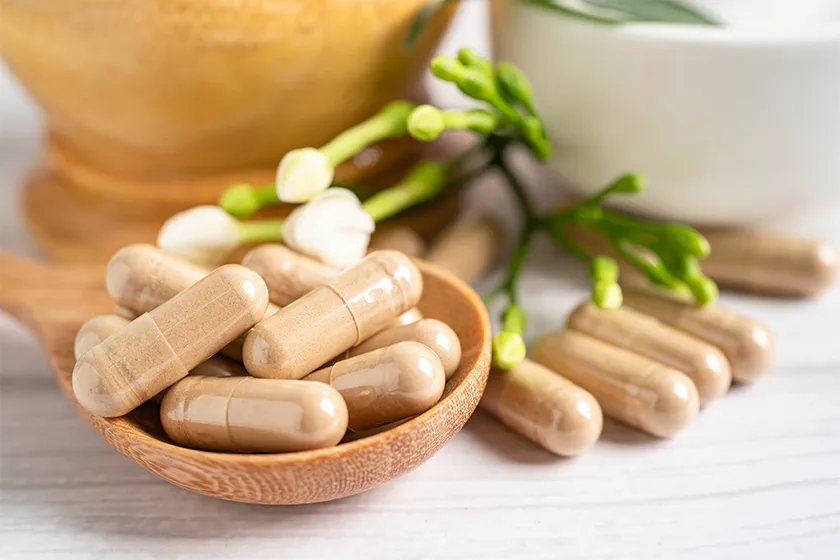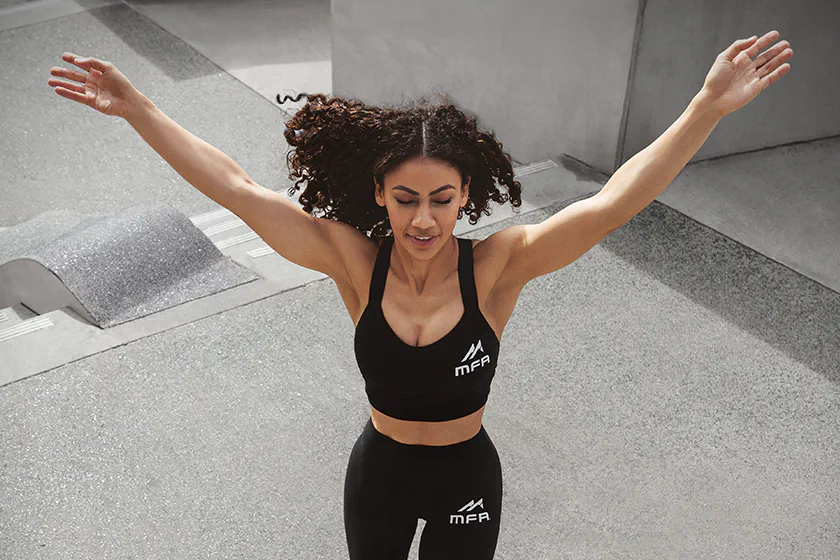Probiotics and Their Impact on Fitness Goals

Can Gut Health Improve Your Performance and Recovery?
In recent years, the connection between gut health and overall well-being has gained significant attention in the health and fitness community. Probiotics, live beneficial bacteria that support digestive health, have been studied for their potential to enhance athletic performance, improve recovery, and boost immunity. But can optimizing your gut microbiome really make a difference in your fitness journey?
This article explores the science behind probiotics, their impact on physical performance, and how they may help with muscle recovery, energy levels, and immune function.
What are probiotics?
Probiotics are live microorganisms, primarily bacteria and some yeasts, that provide health benefits when consumed in adequate amounts. They are commonly found in fermented foods like yogurt, kefir, sauerkraut, kimchi, and kombucha. But they are also widely available as dietary supplements.
The gut microbiome is he community of trillions of bacteria living in your digestive tract. It plays a crucial role in:
- Digestion,
- Nutrient absorption,
- Immune function, and
- Mental health
A balanced microbiome supports overall health, while an imbalance (dysbiosis) can lead to digestive issues, inflammation, and weakened immunity.
How does gut health affect fitness?
Research suggests that a healthy gut microbiome may influence the following:
Energy metabolism
Certain gut bacteria help break down complex carbohydrates and fibers into short-chain fatty acids (SCFAs), which can be used as an energy source.
Inflammation and recovery
A balanced microbiome helps regulate systemic inflammation, which is crucial for post-workout recovery.
Immune function
Intense exercise can temporarily suppress the immune system, but probiotics may help maintain immune resilience.
Nutrient absorption
Efficient digestion ensures optimal uptake of proteins, vitamins, and minerals needed for muscle repair and growth.
How can probiotics boost athletic performance?
We can recognize four main mechanisms by which probiotics can boost your athletic performance:
1. Enhanced Energy and Endurance
Some studies suggest that certain probiotic strains can improve energy production by enhancing carbohydrate metabolism. For example, lactobacillus and bifidobacterium strains may increase the availability of glucose and glycogen, which are critical for endurance athletes.
A study published in the Journal of Science and Medicine in Sport (2016) found that athletes taking probiotics had improved running performance and reduced fatigue.
2. Reduced Exercise-Induced Inflammation
Intense workouts cause muscle damage and trigger an inflammatory response. While acute inflammation is necessary for adaptation, chronic inflammation can hinder recovery. Probiotics may help by:
- Lowering pro-inflammatory cytokines (molecules that promote inflammation).
- Increasing anti-inflammatory compounds like SCFAs.
A 2019 study in Nutrients showed that probiotics reduced markers of inflammation in athletes after strenuous exercise.
3. Faster Recovery and Reduced Muscle Soreness
Delayed onset muscle soreness (DOMS) is common after intense training. Some evidence suggests probiotics may:
- Decrease oxidative stress, which contributes to muscle damage.
- Support protein synthesis by improving amino acid absorption.
A 2020 study in the International Journal of Environmental Research and Public Health found that probiotics helped reduce muscle soreness and accelerate recovery in resistance-trained individuals.
4. Immune System Support
Athletes, especially endurance runners, and high-intensity trainers, are prone to upper respiratory infections due to immune suppression post-exercise. Probiotics may:
- Strengthen gut barrier function, preventing harmful pathogens from entering the bloodstream.
- Stimulate immune cells like IgA antibodies and natural killer (NK) cells.
Research in the British Journal of Sports Medicine (2014) found that probiotics reduced the incidence of respiratory infections in marathon runners by fifty percent.
What are the best probiotic strains for athletes?
Not all probiotics are the same. Different strains have unique benefits. Some of the most researched strains for fitness include:
- Lactobacillus acidophilus: Supports digestion and immune function.
- Bifidobacterium bifidum: Helps reduce gut permeability (leaky gut).
- Lactobacillus casei: May reduce exercise-induced oxidative stress.
- Saccharomyces boulardii (a beneficial yeast): Helps prevent gastrointestinal distress during endurance events.
How to incorporate probiotics for fitness benefits?
Everyone can enjoy the benefits of probiotics. Leading an active lifestyle can only enhance the overall positive effect. A regular intake of probiotic foods, supplements, and prebiotics is the best combination. Here are the details:
The best food sources of probiotics include:
- Yogurt (with live cultures)
- Kefir (fermented milk drink)
- Sauerkraut and kimchi (fermented vegetables)
- Kombucha (fermented tea)
- Miso and tempeh (fermented soy products)
The quality of probiotic supplements depends on several factors. Here’s what to look for:
- Multiple strains (diversity is key for gut health).
- High CFU count (Colony Forming Units—aim for at least 10–50 billion CFU).
- Survivability (enteric-coated capsules or spore-based probiotics survive stomach acid better).
Last but not least, don’t forget prebiotics (for synergetic benefits). Prebiotics are fibers that feed probiotics, enhance their effectiveness, and support a healthy microbiome. They are found in foods like garlic, onions, bananas, asparagus, and oats,
What are the potential considerations and side effects?
While probiotics are generally safe, some individuals may experience:
- Bloating or gas (usually temporary as the gut adjusts).
- Digestive discomfort (start with a low dose and increase gradually).
- Strain-specific effects (some may not suit everyone).
The best strategy is to consult a doctor before starting probiotics, especially if you have a compromised immune system or suffer from digestive disorders.
The Bottom Line
Contemporary scientific research suggests that probiotics and gut health play a significant role in athletic performance, recovery, and immune resilience. How do they achieve this? By balancing your gut microbiome!
A balanced microbiome supports digestion, reduces inflammation, and enhances nutrient absorption. This helps athletes train harder, recover faster, and stay healthier. However, probiotics alone won’t replace proper training, nutrition, and rest. But they are an invaluable addition to every fitness-focused lifestyle.
Therefore, it is important to use probiotics. Whether through fermented foods or high-quality supplements, there is no wrong way to optimize your gut health. If you’re an athlete or fitness enthusiast, consider experimenting with probiotics for at least four to six weeks while tracking performance, recovery, and digestion to see if they make a difference. You just might find that missing link for achieving peak performance!
Dr. Rosmy Barrios is a physician specializing in regenerative and aesthetic medicine. She serves as the Medical Director of the Regenerative Medicine Department at P.A.R.K.S Clinic. With over a decade of international experience, Dr. Barrios focuses on anti-aging therapies, cellular regeneration, and holistic wellness. She is also a published health writer and advisor, contributing to platforms like Forbes and Yahoo Health, and is a member of several global aesthetic medicine associations.



